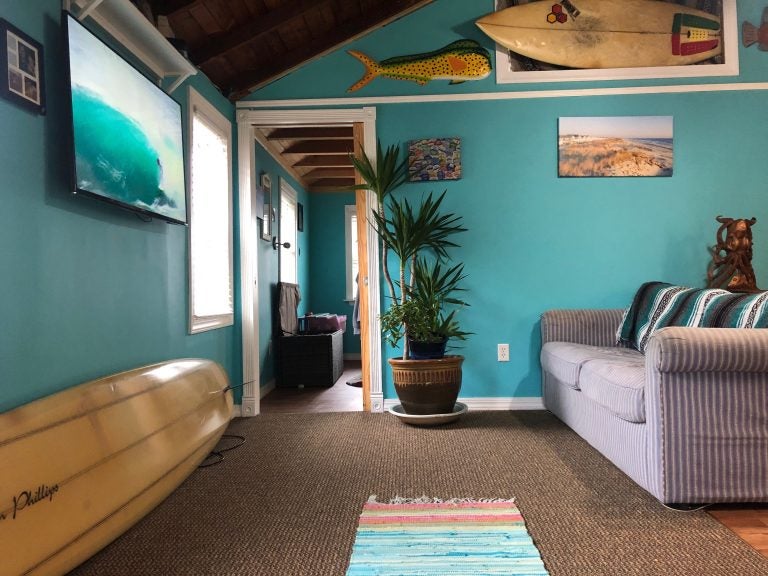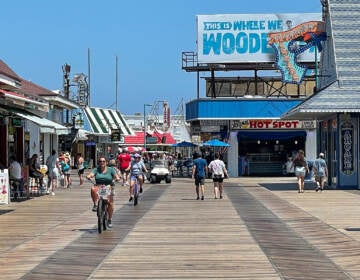Jersey Shore Airbnb hosts earned nearly $70M during 2019, company says
Jersey Shore homeowners that list their units on the popular rental marketplace Airbnb collectively raked in tens of millions of dollars in 2019, the company said.

A bungalow in South Seaside Park, New Jersey. (Courtesy of Dominick Solazzo)
Jersey Shore homeowners that list their units on the popular rental marketplace Airbnb collectively raked in tens of millions of dollars in 2019, the company said.
According to data released by Airbnb, total host income in Atlantic, Cape May, Monmouth, and Ocean counties was $66.5 million last year. Cape May accounted for just over half of the total, generating $33.9 million in rentals.
Away from the Jersey Shore, Hudson County led the state with $75 million in host income, followed by Cape May, Atlantic ($12.3 million), Ocean ($11.8 million), Essex ($8.9 million), and Monmouth ($8.5 million).
The weekends of July 26-28 and August 2-4 were the highest total host earning periods in New Jersey, both generating $10.7 million. They were followed by August 9-11 ($10.6 million), August 16-18 ($9.9 million), and August 30-September 1 ($8.8 million).
The data also indicates that 360,900 guests stayed at Jersey Shore Airbnb rentals in 2019.
The company also reported that it had collected and remitted approximately $17.1 million in taxes to the state government from January 2019 through October 2019.
“2019 was another great year for Airbnb in New Jersey, with more local residents embracing the economic opportunities offered by home sharing — and small businesses and entire communities benefiting as a result,” company spokesman Josh Meltzer said in a prepared statement.
Gov. Phil Murphy signed a law last summer that exempts homeowners renting directly to tenants from having to charge renters costly new taxes that targeted short-term rental through online marketplaces.
Homeowners and vacationers said the move would hurt tourism at the Jersey Shore and cause people to spend less in one of the state’s critical economies.
The measure had been pushed by Airbnb’s rivals in the hotel industry, who said short-term rentals had an unfair advantage and were hurting local housing markets. It was supported by Airbnb itself as the company sought to gain legitimacy in the face of growing criticism from residents and local officials.
Nicholas Pugliese and Joe Hernandez contributed to this report.
WHYY is your source for fact-based, in-depth journalism and information. As a nonprofit organization, we rely on financial support from readers like you. Please give today.


